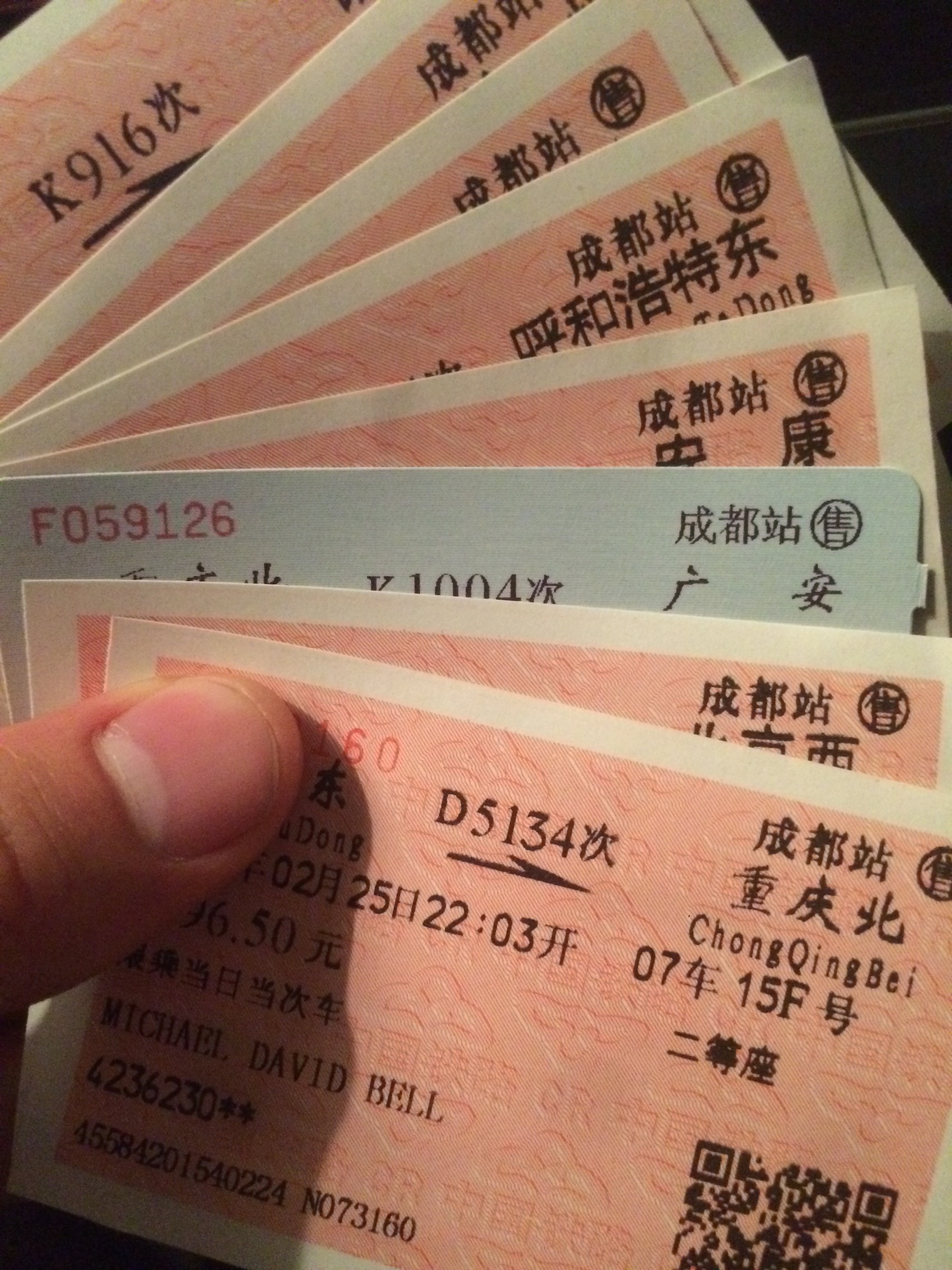Summary: Taking time to reflect on who you are and where you’re going is important to do at any stage of life. Here’s how I went about my personal sabbatical, what I wanted to achieve, and what I got out of it.
Inspiration: One of my primary inspirations for taking time for a personal sabbatical was the TED Talk “The Power of Time Off” by Stefan Sagmeister.
“Every seven years, designer Stefan Sagmeister closes his New York studio for a yearlong sabbatical to rejuvenate and refresh their creative outlook. He explains the often overlooked value of time off and shows the innovative projects inspired by his time in Bali.”
Objectives: Here were my objectives for my personal sabbatical time.
- Personal Strategic Planning and Review: My first and primary objective was to assess my personal strategy and develop a strategic outlook for myself for the next 1-3-5 years. I did not want to look back on an unexamined, undirected life. I viewed my sabbatical time as a prudent forward-looking investment, particularly as someone on a less traditional career path. While some may view a sabbatical as forbearance on life’s obligations, I view it as necessary preparation. Life is a choose-your-own-adventure and not merely “connecting the dots” that others have set out before you.
- Better Understand of My Tennis Ball: In Drew Houston’s, the founder of DropBox, MIT commencement address, Houston discussed the importance of finding your personal “tennis ball.”
“I was going to say work on what you love, but that’s not really it. It’s so easy to convince yourself that you love what you’re doing — who wants to admit that they don’t? When I think about it, the happiest and most successful people I know don’t just love what they do. They’re obsessed with solving an important problem, something that matters to them. They remind me of a dog chasing a tennis ball: their eyes go a little crazy, the leash snaps and they go bounding off, plowing through whatever gets in the way. I have some other friends who also work hard and get paid well in their jobs, but they complain as if they were shackled to a desk.
It took me a while to get it, but the hardest-working people don’t work hard because they’re disciplined. They work hard because working on an exciting problem is fun. So after today, it’s not about pushing yourself; it’s about finding your tennis ball, the thing that pulls you. It might take a while, but until you find it, keep listening for that little voice.”
My second goal was to explore common denominators in my life, the “tennis balls” that I love chasing the most, and how I can leverage these personal passions the most in my life.
- Reflect on What Would Bring Me Back: As a personal experiment with myself as the subject, I wanted better understand what I was missing and what would bring me back after I had stepped away from my normal routine. During my travels I’ve met a number of people who have traveled the world, found a certain beautiful place that was far from home, and stayed. Would that tempt me? Would I too be content to spend the rest of my days in a tropical paradise? The easy answer is no. The more interesting question is, why?
- Satisfy My FOMO: My somewhat insatiable curiosity is matched by my fear of missing out (“FOMO”). During my sabbatical time I wanted to appease my FOMO by 1) spending time in some of the most beautiful places in the world and 2) exploring as many areas of personal reflection as time allowed. I didn’t want to have the nagging feeling that there were places or personal reflections that I hadn’t yet explored.
- Reflect On Why I Felt the Need to Take a Sabbatical: Taking a personal sabbatical was something that I felt I needed to do, but why? What is missing? Where did I think that I needed to prepare? What aspects of my personal outlook needed a strategic review?
How I Did It:
- Selected a Destination: My considerations for the location of my sabbatical were 1) Find some of the most beautiful and less traveled beaches in the world 2) Limit distractions 3) Choose destinations with a low cost base. Based on these criteria, I decided to spend the majority of my sabbatical time in the Philippines and Bali.
- Allocated Blocks of Time: To really dig into some of the strategic questions I wanted to tackle during my sabbatical time, I needed to schedule relatively large, uninterrupted blocks of time. Within those blocks, I would usually focus on one topic or question to strategize on that day. I also incorporated what I called “zero time” for free-form thinking without a structured approach. Doing nothing and daydreaming is actually much more difficult than it sounds, but also much more worthwhile. While most of my time was spent reflecting on a certain topic at a given time, I also wanted to allocate a certain amount of time for open brainstorming.
- Eliminated Distractions: In terms of limiting my distractions, it was helpful that I was often in fairly remote places that weren’t connected to the electricity grid. Many times I didn’t have power during the day and the only power came from diesel generators a few hours a night. Additionally, the time zone difference between my clients in the U.S. worked in my favor so I was not interrupted by client work during the day. I could then focus on my consulting work in the evenings to align with U.S. time zones. I also tried to limit my travel during my sabbatical time to ensure that I had a relatively consistent schedule and was not spending all of my time en transit.
- Compiled My List of Questions: Based on my own strategic questions as well as those from personal reading, I compiled a list of questions on which to reflect. Typically I would plan to reflect on one question each day and also revisit other previous areas on contemplation, as necessary. Some of the most fruitful questions for me are the following:
- What do I want to embody? I thought back about the people who were influential in my life and how they impacted me. It wasn’t always what they said, but rather how they lived and what they embodied. What did the people who I admired and respect embody the most?
- What are the common denominators running throughout my life? When was I the happiest and most successful? What do I consistently gravitate toward?
- What giant important problem matters to me? Instead of chasing happiness, how can I chase problems that I enjoy solving?
- What am I uniquely positioned to be the best in the world at?
- What do I need to do in each relationship in my life to feel successful? (A son, brother, friend, co-worker, etc.) What type of person did I think that others in my life want/need me to be?
- What were pivotal experiences in my life? Are there any common threads? Based on my pivotal personal experiences, how can I identify, support, and capitalize on other pivotal experiences in my life going forward?
- What are the things that I accomplished that I am most proud of personally?
- Ask why to everything. Evaluate the basis for all of my assumptions. But I didn’t just ask “Why?” once, I asked it 5 times in succession for a 6 Sigma-inspired, root cause analysis.
- What is my strategic outlook for the next 1-3-5 years? How do I need to invest in myself to hit my 1-3-5 year goals?
- Do I like myself? What could I do to like myself even more?
- What am I the most grateful for?
- What is the one word that is keeping me from success?
- What are my ideals? If I imagined my ideal job, relationships, lifestyle, etc., what were they?
- If this was all the time that I had, what would I feel like I was missing? What would I wish I would have done or contributed?
- How do I feel about growing old or forced to confront death? What things keep me young?
- How do I keep score? How am I defining success? How will this change in the future?
- How do I max out my positive attributes? After getting some feedback from people in my life, I reflected on how I could best leverage my most valuable attributes?
- How do I want to come back differently than before I left? What didn’t I like about what I was doing before I left?
- What fruits do I want to bear?
- What story do I want to tell? Why does this story need to be told?
- Crowdsourced My Sabbatical: I used my sabbatical time as an opportunity to reach out to people in my life that I respected to solicit their recommended reflections and advice. In effect, crowdsourcing my sabbatical. Some of the best advice that I received included:
1. “Be a part of a something much bigger than you with the people you love (i.e. go build a business with people you like/respect). Don’t worry about the money part. Be safe.”
2. “My current kick is to go back thru the phases / times of your life. Focus on when you were happiest, most engaged, most successful, etc. Go back to Jr High and high school, etc. What were the circumstances / attributes? Big group? Small group? Your role? What did you do? What did others ask of you? What did you learn?
To me, this can lead you to the natural situations / circumstances you are best at. It could lead to multiple career journey focuses, but at least you may learn about yourself what you have consistently gravitated toward… Those “natural skills” and likes / desires will likely repeat themselves in the future. Good luck!!! Can’t wait to hear how it goes!”
3. “Instead of reflecting on “what” you want to do with you life, try reflecting on “who” you want to be. If life is a journey, the best way to arrive at your desired destination is to keep the end in mind. That would be your funeral and your obituary. If you don’t know your destination, how will you ever get there?
He had an impressive obituary filled with a long checklist of life’s accomplishments. But those things were meaningless in the absence of “who” he had become. Go back and read the eulogies. The theme was about “who” he was, not “what” he had accomplished.”
4. “Is that the measure you want to use? Money? Why not aim higher? What can you do that will make the world a better place?”
5. “Think on the times that you had an unexpected or atypical emotional reaction. Why?”
6. “Don’t be afraid to look at the answers in the back of the book. See what successful people have done who have gone before you.”
- I Wrote: Wrote a lot. For me this is the most effective way to verbalize my thinking and tease out more nuanced views during my reflections.
Outcome: While I may not have the answers to all of life’s deepest questions, I do have a much better idea about what questions I should be asking myself. Taking time to do a strategic life assessment allowed me to run faster and focus better since I feel more confident in my direction and strategy. It was also a great opportunity to validate some of the advice that I had received from people I respected most in my life. I can report that my FOMO is better because of where I have traveled and the extent that I have sufficiently reflected on these important areas at this point in my life.
As with most things in life, my personal strategic review is something that’s ongoing and you’re never really “there.” As a friend who is an artist once told me, “Good art is the art you have to struggle to find meaning. To truly appreciate a piece, you have to enjoy the struggle.” Seems applicable when you take the time to step back and find the meaning in your own life. To truly appreciate it, you have to enjoy the struggle.



